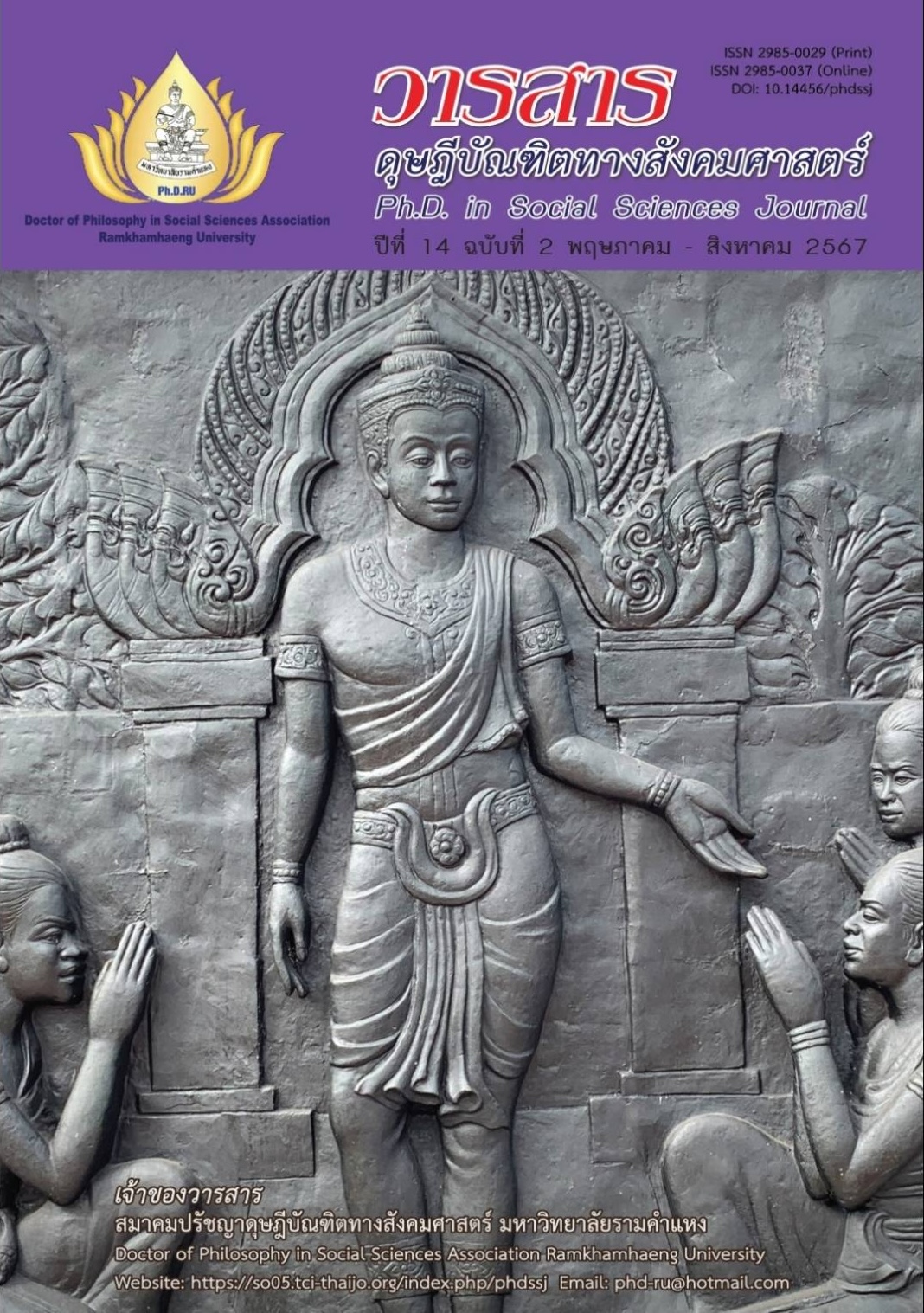The Impact of Adaptive Digital Technology and Antecedents on Perceived Organizational Performance in the Thai Automotive Parts Industry
Main Article Content
Abstract
This research article aimes to study (1) the impact of adaptive digital technology on perceived organizational performance in the Thai automotive parts industry and (2) the impact of adaptive digital technology in the Thai automotive parts industry. The research methodology was a mixed-methods research. In qualitative research, the technique of in-depth interview was employed with seven key informants. In the quantitative research, a questionnaire was an instrument to collect data from 472 personnel in the automotive parts industry. The statistics used are descriptive statistics and structural equation modeling analysis.
Findings are as follows: The positively affected the learning organization, effective team, adaptive digital technology, and perceived organizational performance. Findings/value obtained from this research are that the learning organization could build a team with strong potential leading to the capability of adaptive digital technology and the performance according to the goals. Findings/value obtained are beneficial to those who desire to study adaptive digital technology and perceived organizational performance in the automotive parts industry and in other industries in the future.
Article Details

This work is licensed under a Creative Commons Attribution-NonCommercial-NoDerivatives 4.0 International License.
Academic articles, research articles, and book reviews in the Ph.D. in Social Sciences Journal are author’s opinions, and not the publisher’s, and is not the responsibility of the Ph.D. in Social Sciences Journal Philosophy Association, Ramkhamhaeng University. (In the case that research is done on human, the researcher has to be trained in Ethics for Doing Research on Human Training and has to produce the evidence of the training).
References
Angsuchoti, S., Wijitwanna, S., & Pinyopanuwat, R. (2014). Analysis statistics for social and behavior science: Technique for LISREL program (4th ed.). Charoendeemonkong Printing. [In Thai]
Comrey, A. L., & Lee, H. B. (1992). A first course in factor analysis (2nd ed.). Psychology Press.
Daft, R. L. (2002). The leadership experience (2nd ed). Harcourt College.
Dekoulou, P., & Trivellas, P. (2014). Learning organization in Greek advertising and media industry: A way to face crisis and gain sustainable competitive advantage. Procedia–Social and Behavioral Sciences, 148, 338-347.
Ebert, R. J., & Griffin, R. W. (2015). Business essential (10th ed.). Pearson.
Fornell, C., & Larcker, D. F. (1981). Evaluating structural equation models with unobservable variables and measurement error. Journal of Marketing Research, 18(1), 39-50.
Greene, J. C., Caracelli, V. J., & Graham, W. F. (1989). Toward a conceptual framework for mixed-method evaluation designs. Educational Evaluation and Policy Analysis, 11(3), 255-274.
Huber, G. P. (1991). Organizational learning: The contributing process and the literatures. Organization Science, 2(1), 88-115.
Jenatabadi, H. S. (2015). An overview of organizational performance index: Definitions and measurements. Retrievred from https://ssrn.com/abstract=2599439
Kiewcharoen, M., Meechaisue, P., Sanguanwongwan, W., & Chinuntdej, N. (2021). The impact of effective teams and their antecedents on perceived organizational performance in the Thai auto parts industry. Ph.D. in Social Sciences Journal, 11(2), 508-519. [In Thai]
KKP Advice Center. (2022). KKP research: When the automotive industry shifts to EV, why is Thailand at a disadvantage to competitor. Retrievred from https://media.kkpfg.com/document/2022/Apr/KKP%20Research_Thai_Automotive_Industry_Analysis_Edit.pdf [In Thai]
M Repot. (2023). How Japanese machine tools are catching the green transformation trend?. Retriverd form https://www.mreport.co.th/news/trend-and-innovation/203-Japanese-Machine-Tools-caught-Green-Transformation-trend [In Thai]
Ministry of Industry. (2016). Thai industrial development strategy 4.0, 20-year period (2017-2036). Author. [In Thai]
Owen, H. (1990). Spirit: Transformation and development in organizations. Abbott.
Parker, G. M. (1996). Team players and teamwork: The new competitive business strategy. Jossey-Bass.
Ramaswamy, V., & Ozcan, K. (2018). What is co-creation?: An interactional creation framework and its implications for value creation. Journal of Business Research, 84, 196-205.
Reis, J., Amorim, M., Melão, N., & Matos, P. (2018). Digital transformation: A literature review and guidelines for future research. In A. Rocha., H. Adeli., L. P. Reis., & S. Costanzo (Eds.), Trends and advances in information systems and technologies (pp. 411-421). Springer.
Senge, P. M. (1990). The fifth discipline: The art and practice of learning organization. Doubleday/Currency.
Stata, R. (1989). Organizational learning-the key to management innovation. Sloan Management Review, 30(3), 63-74.
Thai PBS. (2023). Japanese technology electric vehicles made in Thailand: See and know Dohiru [CC]. Retrievred from https://www.youtube.com/watch?v=7yf0KpxyrBY [In Thai]
Thailand Automotive Institute, Automative Intelligence Unit. (2022). Entrepreneur database. Retrievred from https://data.thaiauto.or.th
Yulk, G. (2002). Leadership in organizations (5th ed.). Prentice Hall.
Zoltan, R., & Vancea, R. (2015). Organizational work groups and work teams-approaches and differences. Ecoforum Journal, 4(1), 94-98.


